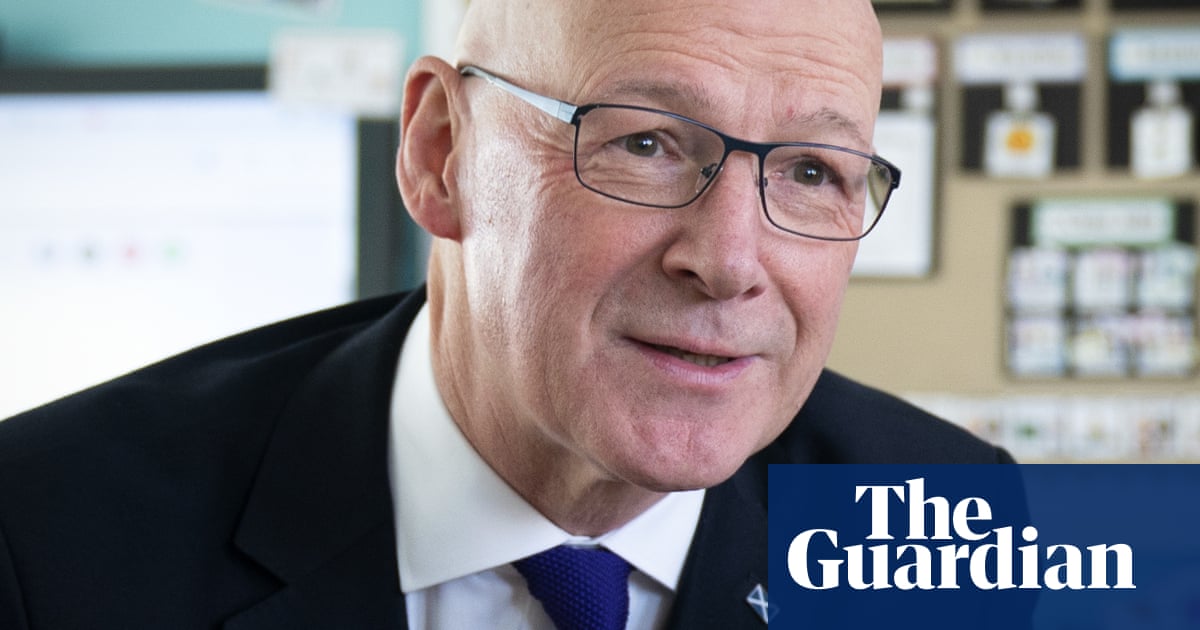SNP activists and senior figures have vented their frustrations at their leader, John Swinney, after a “disastrous” byelection campaign that saw the party lose a pivotalHolyrood seat to Scottish Labour.
The party was also accused of running a “panicked” campaign that some believe pushed more voters towards Reform in last Thursday’s Hamilton, Larkhall and Stonehouse byelection.
SNP members are voicing criticisms of the result at branch meetings, with Swinney expected to face robust questioning at the SNP’s national executive committee meeting on Sunday.
Central to members’ concerns was the key campaign message that the byelection was a two-horse race between the SNP andReform UK, which has been gaining ground in Scotland since last year’s general election. That was coupled with the party’s failure to promote independence as an alternative to the rightwing populist party’s divisive rhetoric.
In the event, Scottish Labour’s popular local candidate, Davy Russell, pulled off an unexpected victory, beating the Nationalists’ Katy Loudon by 600 votes, with Reform UK’s Ross Lambie 800 votes behind her.
Since last Thursday’s result, Swinney has faced calls to resign from veteran SNP critics as well as feverish speculation about plots among senior party figures to oust him.
The former SNP MP Tommy Sheppard, writing in the National earlier this week, branded the strategy a “disaster”.
“The message to anyone flirting with Reform UK is that they are a serious contender, best placed to upset the SNP. We make their argument for them.”
One experienced campaigner said: “People think the party got it wrong this time.” They argued, however, that members remained willing to give Swinney initial time to reflect, before adding “if he digs his heels in around strategy and doesn’t listen, it will be a very different mood”.
Others pointed out that, compared with the “off-the-scale” internal divisions experienced by the party towards the end of Nicola Sturgeon’s leadership and under her successor, Humza Yousaf, current discontent is relatively minimal.
In a modest reshuffle on Wednesday morning, Swinney created an elevated role as cabinet secretary for housing for the rising star Màiri McAllan as she returned from maternity leave, signalling a renewed focus on voter priorities ahead of next May’s Holyrood elections.
The Guardian understands that Swinney faced criticism of the Hamilton strategy at a “fractious” MSP group meeting on Tuesday. There he repeated his insistence that the Reform-focused strategy was led by what canvassers were hearing on the doorstep.
But one senior backbencher suggested that Swinney had “panicked” at the growing support for Reform – who secured 26% of the vote last week – especially after their strong showing in the English council elections, which took place just as the Hamilton campaign was gaining momentum.
“He talked about Reform too much and not enough about Katy. We didn’t give people a reason to vote for us.”
At this Sunday’s meeting of senior party officials, insiders expect “a demand for a clearer vision, focused on independence”.
Stewart McDonald, the influential former SNP MP, praised Swinney’s leadership as having broought calm after “an incredibly turbulent few years”, but said he urgently needed to give party and government “a renewed sense of purpose”.
“The party’s campaign infrastructure is dated, tired, analogue and it needs to be modernised. Labour outgunned us on the ground in Hamilton and we cannot let that happen in 2026. For the government, people need to start seeing tangible improvements in their living standards and in public services. He has started that process but now needs to put it on steroids. This is the most effective way to ensure we win next year and answer many of the grievances that are driving so many people to Reform: a laserlike focus on makingScotlandbetter”.
Another former MP said Swinney had to pivot fast: “It’s either that or lose the next election. The party failed to act after Rutherglen [another bellweather byelection defeat, in 2023] and the MPs lost. We can’t afford to lose the Scottish government so this is the last-chance saloon.”
